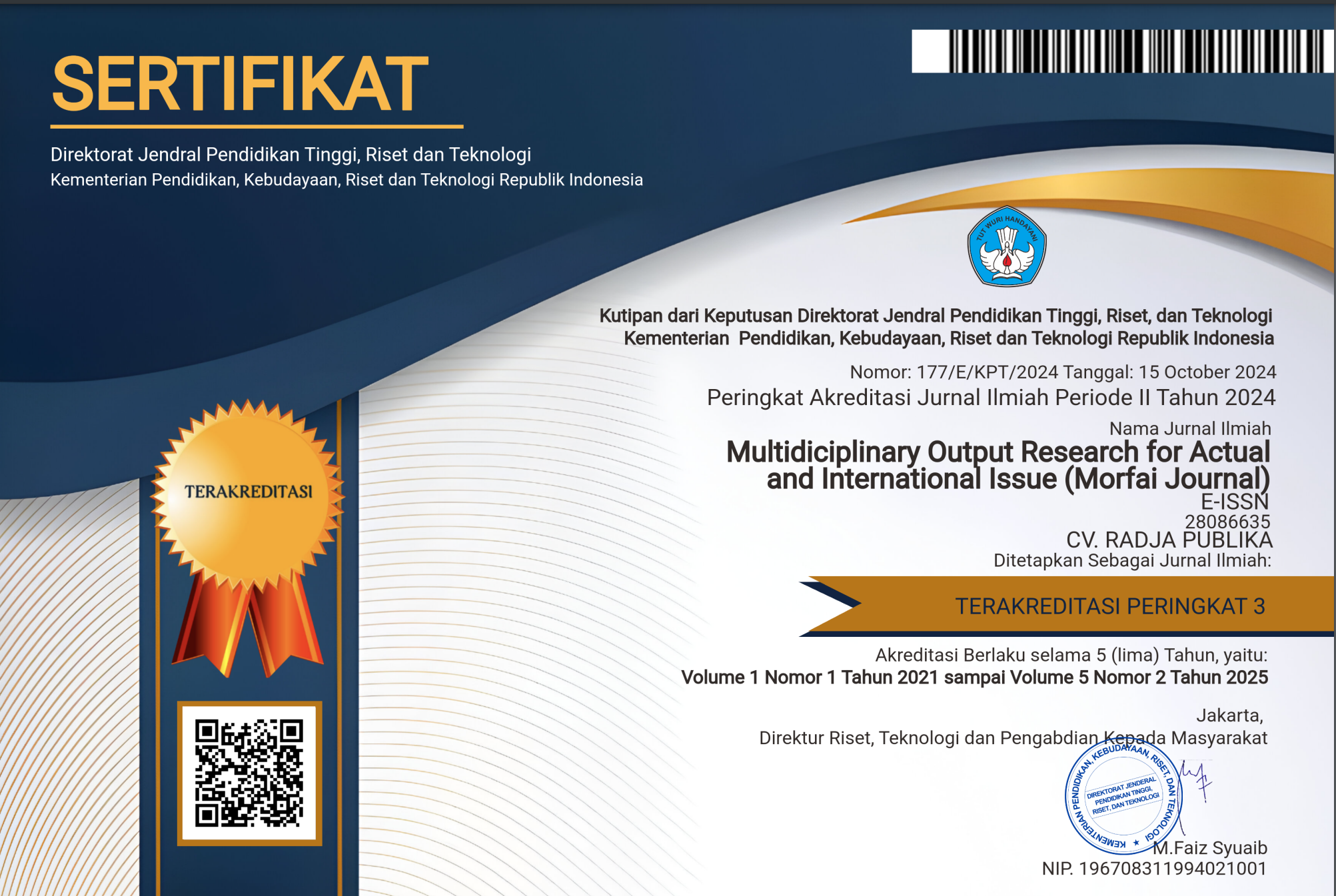PUBLIC POLICY IMPLEMENTATION: CHALLENGES AND SOLUTIONS IN ACHIEVING PEOPLE'S WELFARE
Main Article Content
Yunika Depri Listiana
Jackson Yumame
Melyana R Pugu
The implementation of public policy is a complex process and faces various challenges, including limited resources, social resistance, and the need for coordination between institutions. This challenge demands a holistic approach that involves the active participation of the community and synergy between policy and local needs. This study explores various solutions to overcome obstacles in the implementation of public policies, such as the importance of data-based policies, effective communication, the provision of adequate resources, and continuous monitoring and evaluation. In addition, strong leadership and commitment from all stakeholders play a key role in the successful implementation of policies. With an integrated approach and collective support, the main goal of achieving people's welfare can be realised effectively and sustainably.
Brown, K. (2022). Environmental Policy and Governance. Cambridge University Press.
Clarke, S. (2022). Innovations in Public Administration. Public Management Review, 24(5), 755–774.
Davis, R., & Chen, W. (2023). Rethinking Governance Strategies. Governance Journal, 35(2), 145–160.
Grant, M. J., & Booth, A. (2009). A Typology of Reviews: An Analysis of 14 Review Types and Associated Methodologies. Health Information and Libraries Journal, 26(2), 91–108.
Grindle, M. S., & Adam, G. H. (1980). Policy Content and Context in Implementation. In Implementing Public Policy. Praeger Publishers.
Hernandez, M., & Ling, T. (2023). Innovations in Policy Analysis. Journal of Policy Analysis and Management, 42(3), 299–325.
Hill, M., & Varone, F. (2017). The Public Policy Process (7, Ed.). Routledge.
International Monetary Fund. (2023). Global Financial Stability Report. IMF.
Johnson, A. (2023). Modern Public Policy. Oxford University Press.
Klijn, E. H., & Koppenjan, J. (2016). Governance Networks in the Public Sector: Theoretical Tensions and Empirical Questions. Public Administration Review, 76(3), 486–494.
Knight, G. (2022). Health Policy Challenges Post-Pandemic. In The Future of Global Health. Harvard University Press.
Kraft, M. E., & Furlong, S. R. (2020). Public Policy: Politics, Analysis, and Alternatives (6, Ed.). CQ Press.
Lee, S. H. (2022). Policy Making in the Age of Digitalization. In Digital Governance. Routledge.
Nguyen, M. (2023). Urban Governance and Policies. Springer.
OECD. (2023). Economic Outlook for Southeast Asia, China, and India. OECD Publishing.
Okoli, C. (2015). A Guide to Conducting a Standalone Systematic Literature Review. Springer.
Patel, N. (2022). Public Policy in the Global South. Sage Publications.
Pressman, J. L., & Wildavsky, A. (1984). Implementation: How Great Expectations in Washington are Dashed in Oakland. University of California Press.
Randolph, J. (2009). A Guide to Writing the Dissertation Literature Review. Practical Assessment, Research, and Evaluation, 14(13), 1–13.
Smith, L. (2022). The Future of Policy Implementation. Policy Studies Journal, 50(1), 12–35.
Thompson, J. (2023). Analyzing Social Policy in 2023. Social Policy & Administration, 57(4), 478–492.
United Nations Development Programme (UNDP). (2019). Human Development Report 2019: Beyond Income, Beyond Averages, Beyond Today – Inequalities in Human Development in the 21st Century. UNDP.
Williams, R., & Perez, A. (2022). Cross-Border Policy Implementation. Policy & Society, 41(3), 500–520.
World Bank. (2020). World Development Report 2020: Trading for Development in the Age of Global Value Chains. World Bank.









